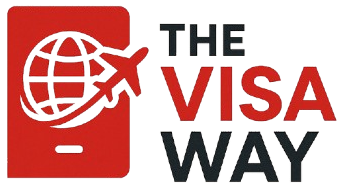Have a question
EB-1 Visa (Employment-Based First Preference)
The EB-1 Visa is an employment-based immigrant visa designed for individuals with extraordinary ability, outstanding professors and researchers, or multinational executives and managers. It offers a direct pathway to permanent residency (Green Card) in the United States and is one of the most sought-after employment-based visa categories due to its faster processing and no labor certification requirement.
What is an EB-1 Visa?
The EB-1 Visa falls under the Employment-Based First Preference (EB-1) category and is reserved for highly skilled individuals who have demonstrated excellence in their field. Unlike other employment-based visas, EB-1 applicants often do not need an employer to sponsor them (depending on the subcategory).
It is divided into three subcategories:
EB-1A (Extraordinary Ability): For individuals with exceptional achievements in sciences, arts, education, business, or athletics. No employer sponsorship is required.
EB-1B (Outstanding Professors and Researchers): For recognized professors and researchers with international acclaim, sponsored by a U.S. employer.
EB-1C (Multinational Managers and Executives): For executives or managers transferred to a U.S. branch, affiliate, or subsidiary of an international company.
Why Choose an EB-1 Visa?
Direct path to a Green Card without labor certification.
Priority processing compared to other employment-based visas.
Flexibility for EB-1A applicants (self-petition without an employer).
Ability to include spouse and unmarried children under 21 as derivative beneficiaries.
Recognized as one of the fastest and most prestigious visa categories.
Eligibility Requirements
EB-1A (Extraordinary Ability)
Must demonstrate extraordinary ability through sustained national or international acclaim.
Evidence such as awards, publications, media coverage, or high salary in the field.
No job offer or employer sponsorship required.
EB-1B (Outstanding Professors and Researchers)
International recognition for academic achievements.
At least 3 years of teaching or research experience.
Must have a permanent job offer from a U.S. university or qualifying employer.
EB-1C (Multinational Managers and Executives)
Must have been employed outside the U.S. for at least 1 of the past 3 years.
Employment must have been in a managerial or executive capacity.
The U.S. employer must be related to the foreign company (parent, subsidiary, affiliate, or branch).
EB-1 Visa Process
Petition Filing (Form I-140): The petitioner (employer or individual, depending on subcategory) submits the petition to USCIS.
USCIS Approval: The petition is reviewed and approved.
Priority Date & Visa Bulletin: Check visa availability (usually current for EB-1 applicants).
Green Card Application: File Form I-485 (Adjustment of Status) if in the U.S., or complete consular processing abroad.
Biometrics & Interview: Attend USCIS biometrics and possible interview.
Approval & Green Card Issuance: Receive permanent resident status.
Documents Required
Valid passport.
Proof of extraordinary ability, international recognition, or executive/managerial experience (depending on EB-1 subcategory).
Recommendation letters from experts in the field.
Evidence of employment (job offer or company documents, if applicable).
Financial documents of the employer (for EB-1B/EB-1C).
USCIS forms (I-140, I-485 if adjusting status).
Civil documents (birth certificates, marriage certificates, etc.).
Medical examination results.
Timeline & Processing Time
USCIS Petition (Form I-140): 6–12 months (premium processing available for EB-1A and EB-1B).
Adjustment of Status or Consular Processing: 6–12 months.
Overall Processing: Typically 12–24 months, faster than most other employment-based visas.
EB-1 vs. Other Employment-Based Visas
EB-1: For extraordinary individuals, top researchers, and multinational managers (fastest path).
EB-2: For professionals with advanced degrees or exceptional ability (requires labor certification unless exempt).
EB-3: For skilled workers, professionals, and other workers (longer wait times).
EB-4: For special immigrants (religious workers, etc.).
EB-5: For investors creating jobs in the U.S. through significant investment.
How We Help
Our team provides full support in securing your EB-1 Visa:
Assessing eligibility across EB-1A, EB-1B, and EB-1C categories.
Preparing a strong I-140 petition with detailed evidence.
Assistance with self-petition (EB-1A) or employer sponsorship (EB-1B/EB-1C).
Compiling expert recommendation letters.
Guiding through Adjustment of Status or Consular Processing.
Ensuring compliance with USCIS requirements at every stage.
Why Choose Us for EB-1 Visa Assistance?
Expertise in handling complex employment-based petitions.
Strong track record of successful EB-1 approvals.
Customized strategies for extraordinary ability and executive applicants.
Dedicated guidance for both petitioners and beneficiaries.
Transparent process with step-by-step support.




